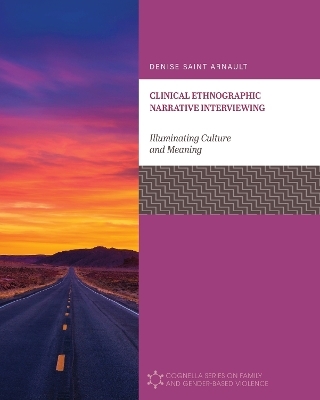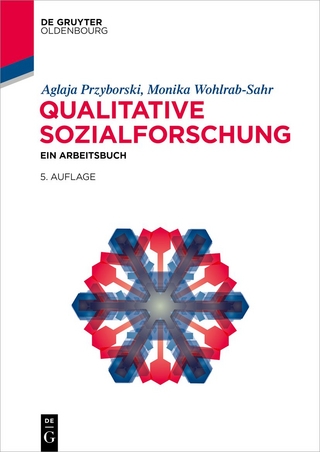
Clinical Ethnographic Narrative Interviewing
Illuminating Culture and Meaning
Seiten
2023
Cognella, Inc (Verlag)
978-1-7935-6635-5 (ISBN)
Cognella, Inc (Verlag)
978-1-7935-6635-5 (ISBN)
Introduces readers to the Clinical Ethnographic Narrative Interview (CENI), a user-friendly, engaging, and qualitative way for both narrators and interviewers to have culturally sensitive, trauma-informed, holistic, and beneficial exchanges about clinical experiences, distress, and recovery.
Clinical Ethnographic Narrative Interviewing: Illuminating Culture and Meaning introduces readers to the Clinical Ethnographic Narrative Interview (CENI), a user-friendly, engaging, and qualitative way for both narrators and interviewers to have culturally sensitive, trauma-informed, holistic, and beneficial exchanges about clinical experiences, distress, and recovery.
The text shows how the CENI is situated within the broader arena of patient-centered narrative approaches and holistic care models. Readers learn how the method meets several contemporary interviewing challenges simultaneously, including: the need to conduct culturally open assessments in an increasingly multicultural world; the need to incorporate trauma-informed interview methods in clinical environments; and the need to provide participants with an experience that enhances their self-understanding and promotes health-seeking and recovery.
The book reviews foundational theoretical perspectives about clinical ethnography, narrative, memory, humanistic and meaning-centered assessment, and trauma-informed interviewing approaches. Interview elements of the CENI are discussed, along with background, rationale, challenges, solutions, and patterns of responses. Readers are provided with salient interviewing strategies, such as pacing, containment, holding, reauthoring, and resolution. The book contains detailed accounts from two real-world cases and concludes with guidance for use of the CENI as a research and clinical practice tool.
Clinical Ethnographic Narrative Interviewing is part of the Cognella Series on Family and Gender-Based Violence, an interdisciplinary collection of textbooks edited by Claire Renzetti, Ph.D. The titles feature cross-cultural perspectives, cutting-edge strategies and interventions, and timely research on family and gender-based violence.
Clinical Ethnographic Narrative Interviewing: Illuminating Culture and Meaning introduces readers to the Clinical Ethnographic Narrative Interview (CENI), a user-friendly, engaging, and qualitative way for both narrators and interviewers to have culturally sensitive, trauma-informed, holistic, and beneficial exchanges about clinical experiences, distress, and recovery.
The text shows how the CENI is situated within the broader arena of patient-centered narrative approaches and holistic care models. Readers learn how the method meets several contemporary interviewing challenges simultaneously, including: the need to conduct culturally open assessments in an increasingly multicultural world; the need to incorporate trauma-informed interview methods in clinical environments; and the need to provide participants with an experience that enhances their self-understanding and promotes health-seeking and recovery.
The book reviews foundational theoretical perspectives about clinical ethnography, narrative, memory, humanistic and meaning-centered assessment, and trauma-informed interviewing approaches. Interview elements of the CENI are discussed, along with background, rationale, challenges, solutions, and patterns of responses. Readers are provided with salient interviewing strategies, such as pacing, containment, holding, reauthoring, and resolution. The book contains detailed accounts from two real-world cases and concludes with guidance for use of the CENI as a research and clinical practice tool.
Clinical Ethnographic Narrative Interviewing is part of the Cognella Series on Family and Gender-Based Violence, an interdisciplinary collection of textbooks edited by Claire Renzetti, Ph.D. The titles feature cross-cultural perspectives, cutting-edge strategies and interventions, and timely research on family and gender-based violence.
Denise Saint Arnault is a professor in the Department of Health Behavior and Biological Sciences, School of Nursing, University of Michigan. She holds a Ph.D. in medical anthropology from Wayne State University and an M.S. from the University of Michigan, Ann Arbor. Dr. Saint Arnault's research centers on gender, cultural and social influences on mental health, trauma recovery, and help seeking. She directs international mixed method research on the relationships between culture and gender.
| Erscheinungsdatum | 08.03.2023 |
|---|---|
| Verlagsort | San Diego |
| Sprache | englisch |
| Maße | 203 x 254 mm |
| Gewicht | 173 g |
| Themenwelt | Medizin / Pharmazie ► Allgemeines / Lexika |
| Sozialwissenschaften ► Ethnologie | |
| Sozialwissenschaften ► Soziologie ► Empirische Sozialforschung | |
| ISBN-10 | 1-7935-6635-6 / 1793566356 |
| ISBN-13 | 978-1-7935-6635-5 / 9781793566355 |
| Zustand | Neuware |
| Haben Sie eine Frage zum Produkt? |
Mehr entdecken
aus dem Bereich
aus dem Bereich
Buch | Hardcover (2023)
De Gruyter Oldenbourg (Verlag)
CHF 48,90
ein Arbeitsbuch
Buch | Softcover (2021)
De Gruyter Oldenbourg (Verlag)
CHF 48,90


